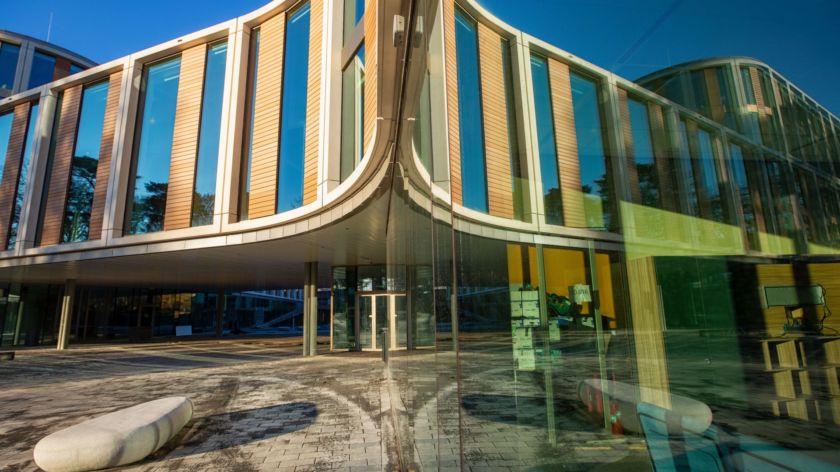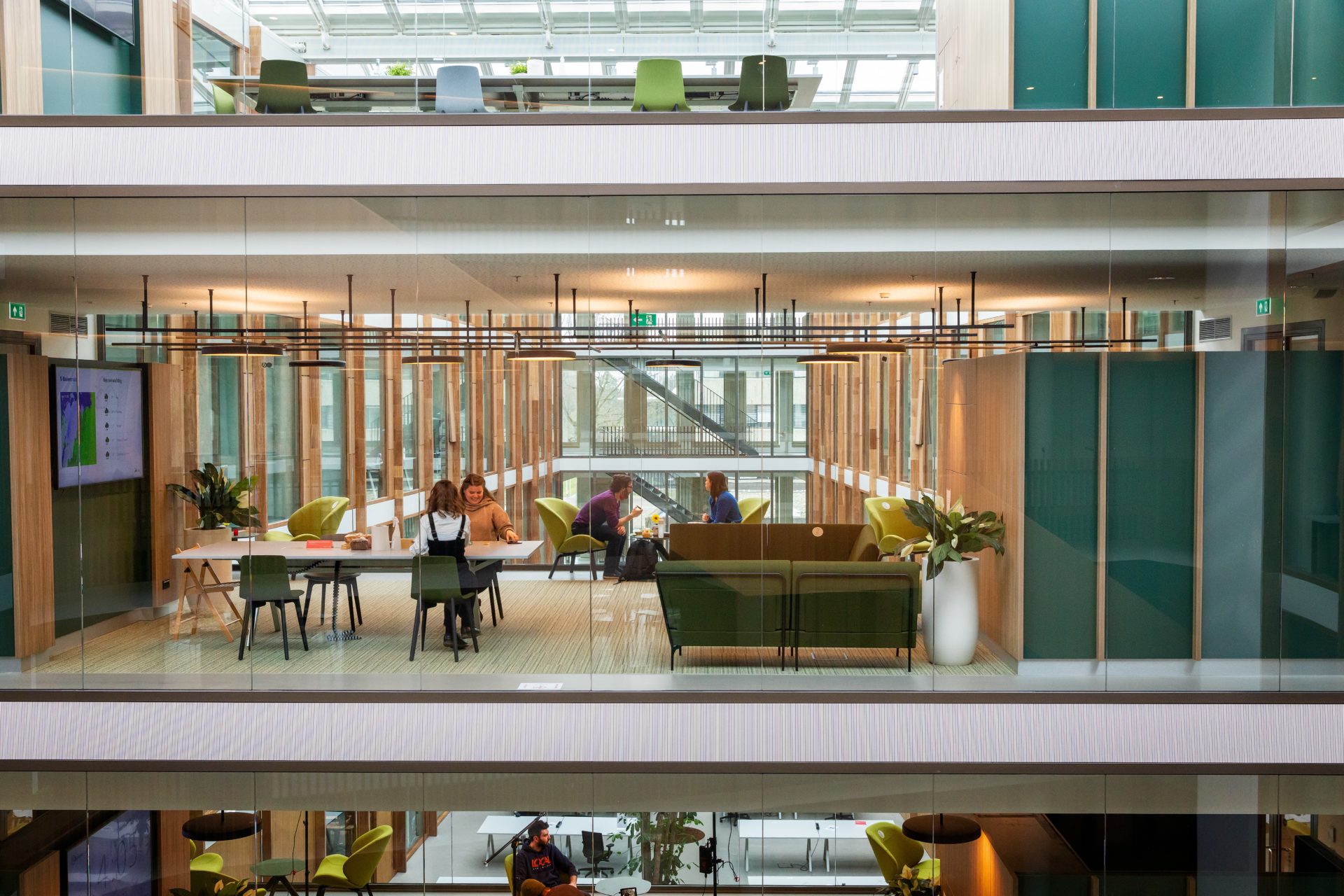Many complaints about working in the new Maria Montessori building
-
 Photo: Dick van Aalst
Photo: Dick van Aalst
A lack of rest and concentration; fear of workplace shortage; women afraid to wear skirts. There are quite a few complaints about the recently opened Maria Montessori-building. Staff members from the Social Sciences are now blowing the whistle to the faculty board.
Everyone agrees that the Maria Montessori-building is an impressive piece of architecture. The new home for the Faculty of Social Sciences opened its doors in November of last year, right before the lockdown. Since September, a lot of lectures are taking place on campus again, and the new building is finally coming to life.
However, the building doesn’t just receive praise. Since the building’s opening, the Divisional Committee (Dutch: Onderdeelscommissie, OC), the representative body for employees, decided to put the most common complaints together in a letter and present them to the faculty board; this happened last week.
Privacy
‘This is not an indictment of the building’ explains Lau Schulpen, chair of the OC. ‘We all want employees to have a comfortable work environment. Through this letter we want to bring these points to the attention of the board, so that these points can be addressed where possible, in the short term.’
Particularly privacy in the building leaves a lot to be desired, according to the OC. Through the abundance of glass walls, a lot of employees feel watched. Because of this they are easily distracted, afraid to wear skirts and dresses, or feel uncomfortable carrying out (difficult) conversations. Added to this is the fact that the offices are not soundproofed: the neighbour’s phone calls or the tapping of high heels in the hallway are both very audible.

The Maria Montessori-building consists of a North wing and a South wing. Both of these have an outer ring of offices with a view of the campus, but also an inner ring whose windows have a view of the atrium. Employees in the inner ring are annoyed with the lack of sunlight, according to the OC. Additionally, the rooms can get quite hot because of the lack of outside windows.
Another concern is the lack of space. Particularly PhD students and employees with limited contracts are afraid that they won’t be able to get a permanent workspace, or that they will lose their workspace when staff are no longer encouraged to work from home.
Co-determination
The Divisional Committee’s letter includes a long list of complaints. Shouldn’t the employees’ wishes have been considered beforehand? According to Gero Lange, vice-chair of the Divisional Committee, co-determination was involved in the development of the building, just not on a very detailed level. ‘Some things need to be experienced first. Besides that, we’re not experts when it comes to acoustics or climate control.’
OC members Lange and Schulpen consider it of the utmost importance that the employees’ complaints be taken seriously. According to them, this hasn’t happened enough. ‘The past six months there was barely any communication about workers’ complaints.’
That changed this week. Last Monday, faculty employees received an e-mail that details the complaints. In this email, which Vox has had access to, the board writes that several of the issues will be addressed. For example, the lack of privacy will be countered by putting up net curtains in the offices along the atrium. Some locations with glass walls will have those walls covered with window film. The board is even considering covering all the walls adjoining the hallways.
The fear that the building would be too small to house every employee is unfounded, according to the board. In their email they say that all contracted employees will have a permanent workspace. However, there are fewer single-person rooms than in the old Spinoza building, and several meeting rooms were converted into office space.
Schulpen and Lange are glad that the faculty board has decided to take action after all. ‘At least they’re showing that they take the complaints seriously and are addressing several issues. But we’re not done with this building yet.’
The board of the Faculty of Social Sciences was unavailable for comment.



